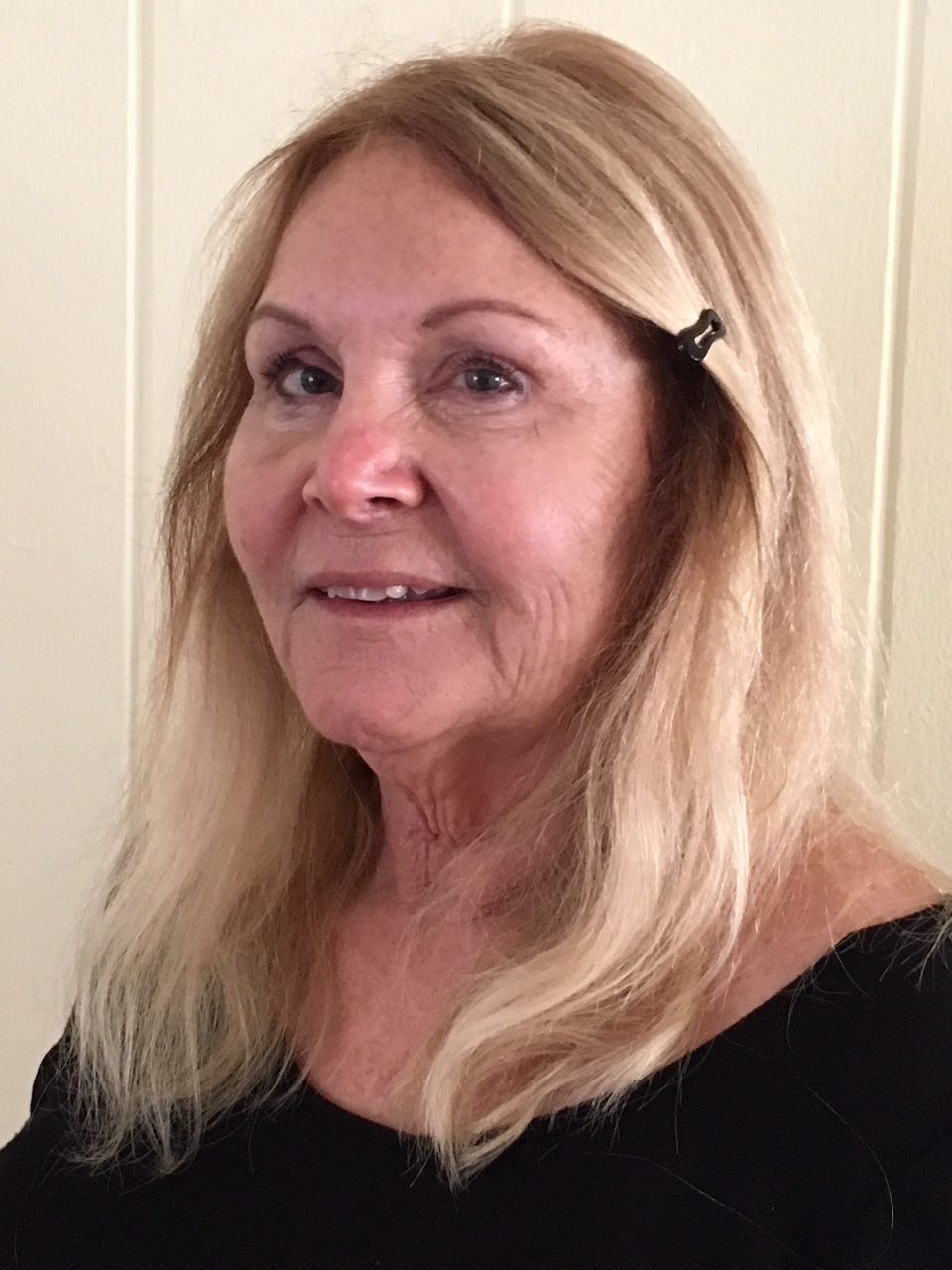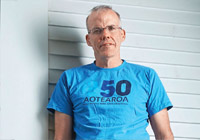WHEN THE TRUMP ADMINISTRATION last year disbanded a committee of scientists advising the Environmental Protection Agency, UCLA’s J.R. DeShazo and other researchers from around the United States obtained outside funding and formed an independent entity to carry on the work.
It is called the External Environmental Economics Advisory Committee. “I and other environmental economists are evaluating each of the proposed EPA rules, but we are now doing that externally, with help from the Sloan Foundation,” DeShazo, chair of the Department of Public Policy and director of the Luskin School for Innovation, said in an interview.
Providing expert advice from outside a government agency, he said, “could become a common approach. It is one example of how we’ve responded to political changes and efforts to limit the use of science in policymaking.”
Another response has been to pay more attention to how people accept and act on information, rather than on merely disseminating the information itself. That’s a specialty of another UCLA researcher, Aaron Panofsky, and others who see increasing evidence that a “ just the facts” approach is not enough.
“We have to be very respectful of how social identities — and we all have them — matter substantially,” said Panofsky, an associate professor in public policy, sociology and the UCLA Institute for Society and Genetics. “We need to engage people by appealing to different factors in their identities.”
“Debate” where none exists
In the roughly three decades since “global warming” and “climate change” entered the public consciousness, debate has raged over whether the interconnected phenomena are real, whether man is responsible for them and who, if anyone, should pay to mitigate them.
In terms of science, that debate is resolved: The planet is growing warmer and human activities, especially the use of fossil fuels, are a primary cause of climate change, which threatens life on Earth. But even as the scientific consensus has solidified, the issue of climate change — like many other issues confronting Americans these days — has become highly politicized.
Despite the widely felt effects of climate change — the melting polar ice caps, heavier rains and record winter snowstorms, hotter summers, more virulent wildfires — Americans are deeply divided, mostly along political party lines, about the causes and effects of climate change and what, if anything, should be done about it.
A 2018 Gallup poll, for example, found that 69% of Republicans think the seriousness of global warming is exaggerated, while only 4% of Democrats hold that view; 34% of Republicans believe the effects of global warming already have begun, contrasted with 82% of Democrats. And while 89% of Democrats believe the phenomenon is caused by human activities, just 35% of Republicans think so. Among those who cling to climate denial is, of course, President Donald Trump, who has called it a “hoax” and rolled back efforts by President Barack Obama and others to increase energy efficiency and reduce greenhouse gas emissions.
Not surprisingly, climate change has become a key issue in the upcoming presidential election; its politicalization, along with dissident scientists offering contrarian views, presents special challenges for mainstream scientists.
In their 2010 book Merchants of Doubt, science historians Naomi Oreskes and Erik M. Conway describe how a band of conservative high-level scientists with strong industry and political connections embarked on a campaign to muddy scientific evidence, starting in the 1950s, to battle mounting research showing the health dangers of cigarette smoking. (Note: Writer Bill McKibben has documented the role of the fossil fuel industry in covering up its awareness of climate change and distorting the issue. He discusses that history in this issue of Blueprint.) Oreskes and Conway demonstrate how the tobacco industry and its backers created just enough doubt to slow down tighter regulation on tobacco and give cover to politicians sympathetic to the industry.
The scientists then used their techniques to defend the Reagan-era “Star Wars” missile defense system, and to discredit mainstream science behind the threat to the ozone layer and the discovery of acid rain. In the mid-1980s, Oreskes and Conway say, these conservative scientists formed the George C. Marshall Institute to bolster conservative views on national defense. Many of these same scientists have been involved in efforts to advance politically conservative views on climate change and other current issues, the authors say.
Oreskes, then a professor of history and science studies at UC San Diego and now at Harvard, and Conway, a historian for JPL at Caltech, criticize the media for its traditional adherence to balance in reporting and giving equal weight to arguments on opposing sides of a question, even in settled scientific matters.
“This divergence between the state of science and how it was presented in the major media helped make it easy for our government to do nothing about global warming,” Oreskes and Conway write. Their book became the basis for a documentary film of the same name in 2014.
Receiving the message
Increasingly, researchers at UCLA and elsewhere are studying how people respond to information and how messaging can affect their acceptance and behavior.
“We have to think about how to make our findings salient,” DeShazo said. “We have to frame them in a way that’s compelling.”
DeShazo joined with researchers Bronwyn Lewis Friscia, then a doctoral candidate at UCLA, and Tamara Sheldon at the University of South Carolina for an online study of how people of differing political views respond to product messaging. For the study, originally part of Friscia’s doctoral dissertation and soon to be published in a separate paper, the researchers tested respondents’ reactions to three different messages on packages of energy-efficient light bulbs, which were priced higher than ordinary light bulbs.
The 1,802 adults who completed the survey were asked about their political beliefs and values, then about how they responded to one of three randomly selected light bulb messages: One emphasized saving; it said the light bulbs would save money because they would last longer. Another emphasized that the bulbs would reduce America’s dependence on foreign energy. The third touted the bulbs as “great for the environment” because they would reduce the greenhouse gas emissions responsible for climate change.
Those who said they were very conservative politically and received the “great for the environment” bulbs chose fewer of them, while the bulbs marketed for their ability to help the country achieve “energy independence” appealed to both conservatives and liberals.
“Overall,” the authors wrote, “the study found these pro-social messages could have a large and often positive effect on consumers’ willingness to pay extra for energy-efficient light bulbs.”
Moreover, the researchers saw in the results “the promise of micro-targeting partisan consumers with pro-social messages that are tailored to their own political ideology as the most effective way of increasing their willingness to pay for energy-efficient technology.”
When facts challenge beliefs
In his office at UCLA’s Life Sciences building, Panofsky has been studying the sociology of science and knowledge, with a special focus on genetics.
In 2017, he presented results of a study with Joan Donovan, now at Harvard’s Kennedy School of Government, which looked at how white nationalists responded when DNA testing revealed they were not as purely “white” as they had thought.
The researchers reviewed more than 3,000 posts on Stormfront, a leading website for those who believe people with white (European, non-Jewish) genes are superior to those of other or mixed races. Panofsky and Donovan focused on posts concerning Stormfront members whose genetic testing had recently revealed that their backgrounds included ancestors from other races or ethnic groups.
Those who had received evidence that they had some non-white or non-European ancestry “expend considerable energy to repair identities by rejecting or reinterpreting genetic ancestry testing results,” the researchers found. The subjects attacked the tests as inaccurate, a conspiracy among non-whites who control the testing companies to sow doubt and confusion among whites. Or they insisted that the analysts had made statistical errors. In other words, they rejected evidence in favor of belief.
“Hello, got my DNA results and I learned today I am 61% European,” began a poster calling himself RogerOne. “I am very proud of my white race and my European roots. I know many of you are ‘whiter’ than me, I don’t care, our goal is the same. I would do anything possible to protect our white race, our European race and our white families.”
Responders were not forgiving. One suggested that RogerOne kill himself because “YOU are not White.”
Another member, apparently picking up on RogerOne’s wish to at least be an ally if he couldn’t be truly white, had this to say: “If you do care about the White race, don’t breed with any White women. Therefore not polluting our gene pool.”
Then there were those who turned against science.
“EVERY single American’s results that I have seen ALWAYS have this 0.1% of non-white garbage,” said one, adding, “[results from 23andme are ‘rigged’] for the very reason and cause of trying to spread multiculturalism and make whites think that they are racially mixed…23andme has been called out for it’s [sic] new method of determining ancestry, this whole 0.1% or 0.2% african or native american (or whatever nonwhite it may be) garbage is 100% falsified and inaccurate.”
Panofsky and Donovan said their study “reframes white nationalism as containing within it a citizen science movement and a racist public sphere.
“White nationalists on Stormfront actively, creatively and critically engage genetic, statistical, historical and anthropological knowledge about human diversity, picking and choosing elements to generate their arguments about racial boundaries and hierarchies.
“While some argue that genetics and biology are tainted and should be ignored, far more are interested in engaging and manipulating their materials.”
The implications for other issues, including climate change, are real. They suggest that committed believers may resist challenges to their ideas and identities. Rather than adjust their realities to the truth, they may simply reject the truth and retreat to preconceptions. If so, this suggests a special challenge for scientists — not only in pursuing the truth but communicating it in ways that people will consider rather than simply reject.
As DeShazo said: “The politicalization and distrust of science has forced academics to think more carefully about how political views affect people’s interpretation of information and their decision-making.
“Acceptance of the science [of climate change] is growing,” DeShazo added, “but whether we are willing to spend more resources to impact it really depends on our political point of view. The willingness to spend resources, or the willingness to make decisions that could impact business or the economy, really depends on whether you are a Democrat or a Republican.
“It didn’t used to be that way.”

























